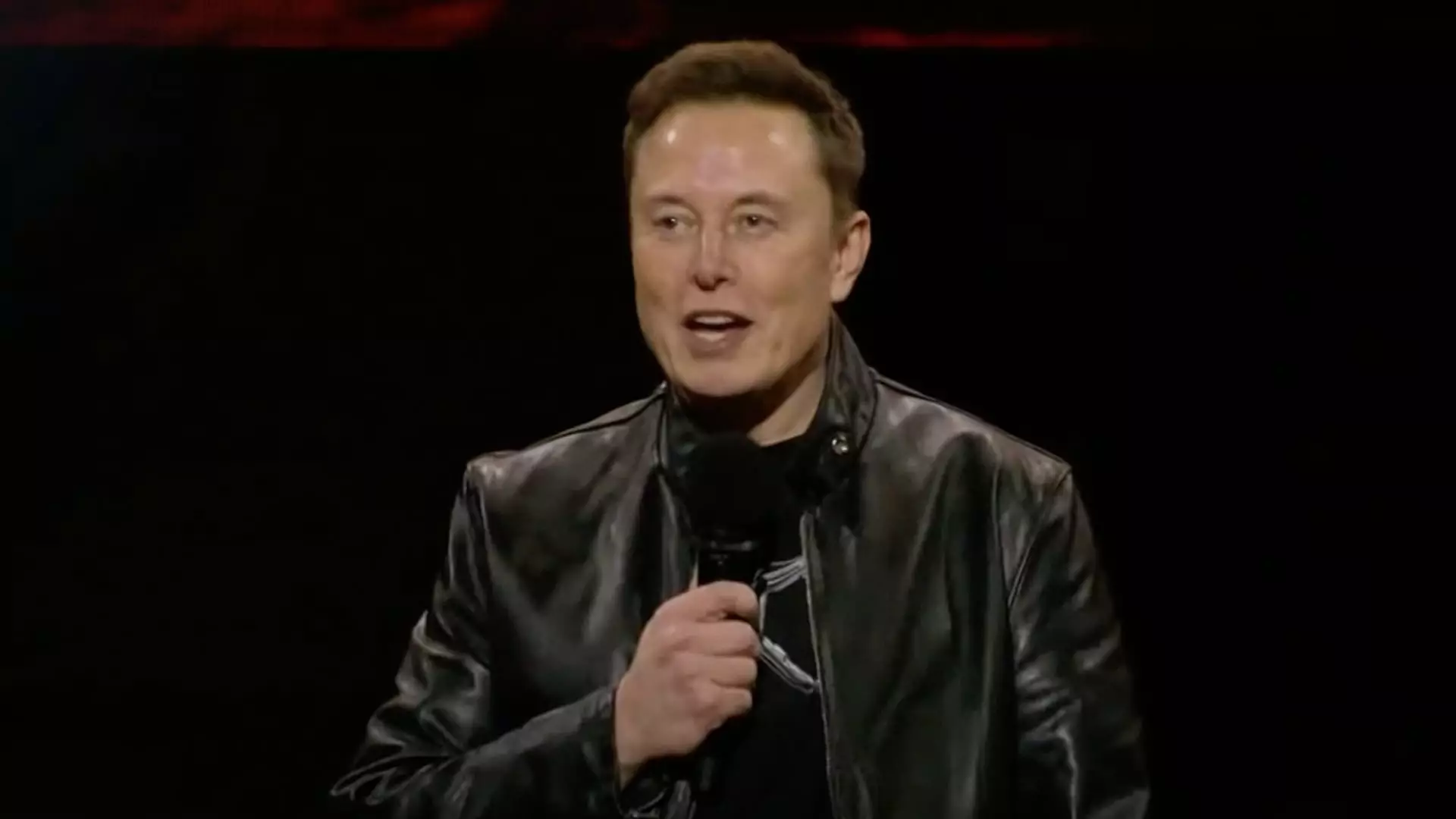In an era where technological innovation intersects with the ever-evolving landscape of intellectual property rights, the recent lawsuit against Elon Musk, his electric vehicle company Tesla, and Warner Brothers Discovery underlines the complexities of such a relationship. Filed by Alcon Entertainment, the producer of the sci-fi film “Blade Runner 2049,” the case revolves around accusations of copyright infringement stemming from the unauthorized use of images linked to a highly anticipated product reveal event for Tesla’s robotaxi concept, known as the Cybercab.
The lawsuit emerged after an October 10th event wherein Musk purportedly utilized an “iconic still image” from “Blade Runner 2049” to promote the Cybercab, despite Alcon Entertainment’s explicit denial of permission for its use. According to court filings, not only did Alcon refuse permission, but they also expressed significant concern over any perceived affiliation between the “Blade Runner” brand and Musk’s endeavors.
The complaint suggests that Musk and his team proceeded with the event anyway, opting instead to deploy a fabricated image generated via artificial intelligence. Alcon’s legal team asserts that this action represents a “massive economic theft,” indicating that the repercussions of this infringement are far-reaching. The Cybercab, which Tesla envisions as a dedicated robotaxi priced below $30,000, symbolizes Musk’s ambitious goals for the future of transportation. Yet, it appears the brand’s association with “Blade Runner” could jeopardize potential collaborations with other entities, especially given the film’s cult status.
An essential facet of this legal battle is the argument surrounding the financial impact of Tesla’s alleged misappropriation of Alcon’s intellectual property. The suit notes that Alcon is in negotiations with other automotive firms to explore partnerships that align with the upcoming “Blade Runner 2099” television series, thus accentuating the potential harm caused by Musk’s actions. If proven, Tesla’s behavior could generate considerable barriers for Alcon in their negotiations and diminish the perceived value of their brand.
The suit also raises issues of false endorsement, a critical aspect of intellectual property claims. It underscores the dangers of unauthorized affiliations that can mislead consumers and undermine trust in both the cinematic and automotive brands involved. In an age where brand loyalty and public image are crucial, any association could lead to damaging repercussions.
Adding another layer of complexity to the case is the characterization of Elon Musk as a “problematic” figure. Alcon’s complaint points out that associations with Musk’s companies can pose significant risks due to his unpredictable and often polarizing public persona. Musk’s political affiliations and controversial comments, especially those made on X (formerly Twitter), could lead to hesitance for brands considering partnerships with Tesla.
The lawsuit hints at a palpable disconnect between the high-minded, futuristic vision of a brand like “Blade Runner” and Musk’s sometimes incendiary commentary on social media. Alcon’s concerns are not merely aesthetic; they are fundamentally about the alignment of values and public perception. Engaging with a brand led by a figure known for polarizing views could impact their appeal to certain demographics and potentially deter other collaborative opportunities.
An overarching theme of this case lies in Musk’s promise of a functional robotaxi, which he has touted for over a decade. Despite the fervor surrounding Tesla’s innovations, the company has yet to release a fully autonomous vehicle that meets safety standards for public use. This inconsistency raises queries not only about Tesla’s claims but also about the validity of a future where Musk’s vision and technological advancements align seamlessly.
Though the lawsuit unfolds, it serves as a reminder of the tightening relationship between innovation, ethical conduct, and intellectual property. As Tesla progresses toward realizing its robotaxi vision, navigating these legal intricacies will become increasingly vital in maintaining corporate integrity and public trust.
Conclusively, this lawsuit is not merely about image usage; it is a reflection of the broader implications concerning brand perception, intellectual property rights, and the intricacies that surround figures like Elon Musk in today’s interconnected landscape. The outcome may set significant precedents influencing both the tech and entertainment industries.



Leave a Reply